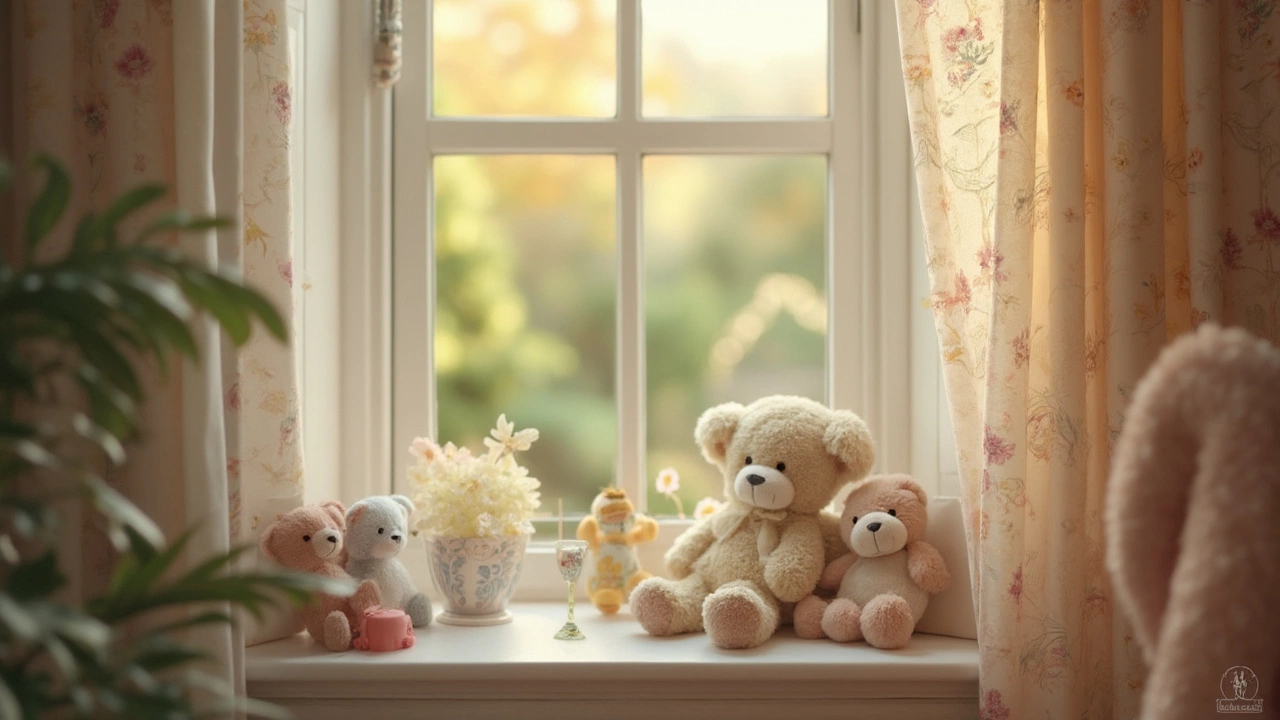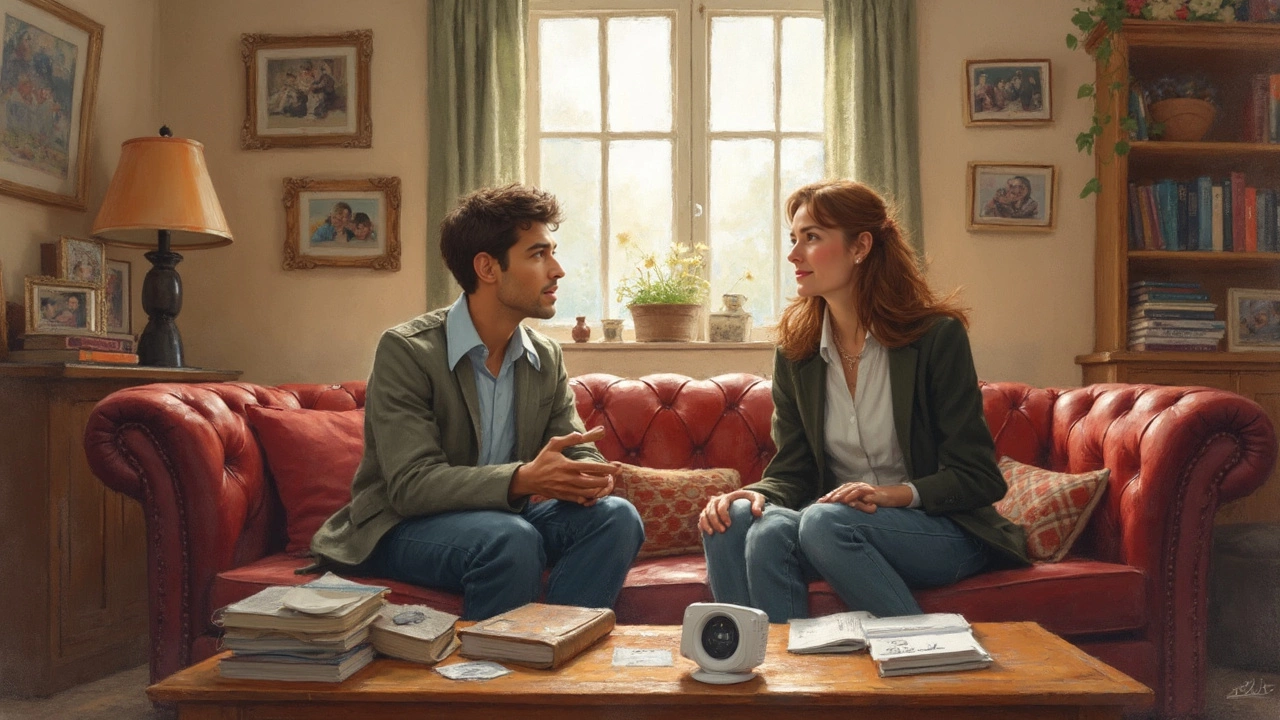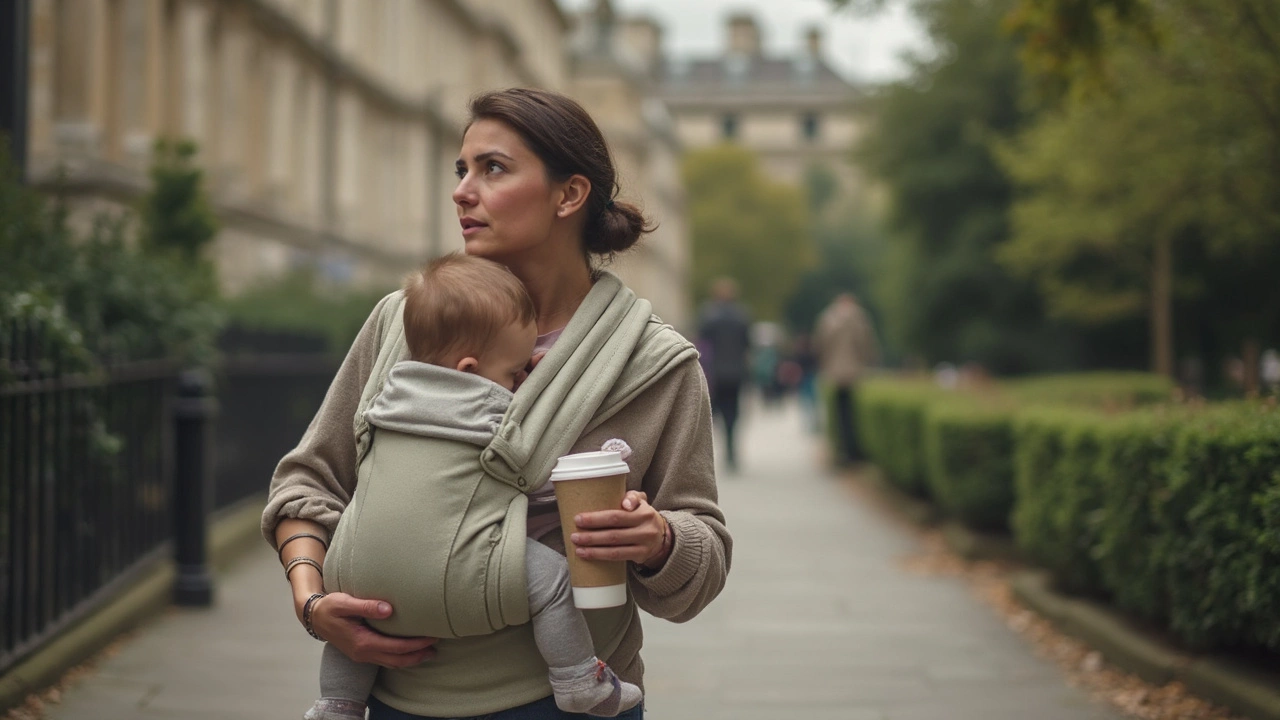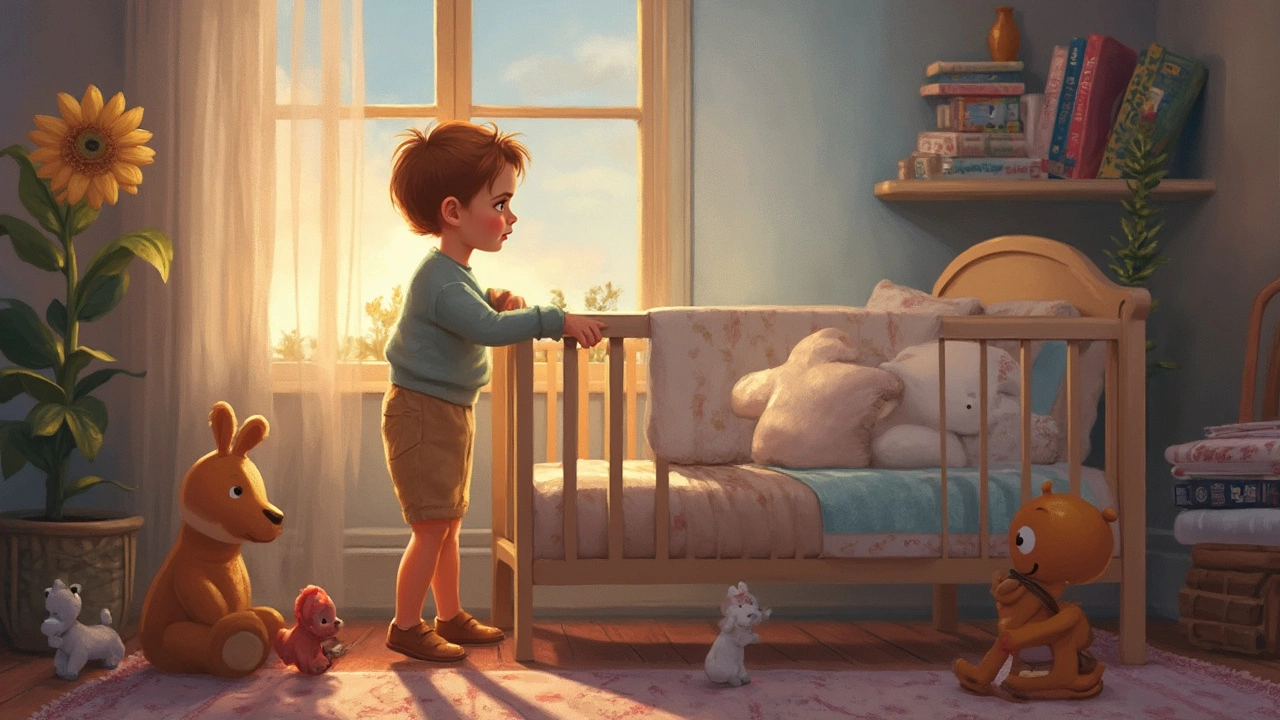At What Age Do Parents Stop Using Baby Monitors?

Ah, the trusty baby monitor. It's been your late-night confidante, always ready to deliver those sleep sounds and ensure your little one is still tucked in safe. But, have you ever found yourself wondering, 'How long should I actually hang on to this thing?' Well, you're not alone.
Most parents start out with baby monitors as a must-have tool for keeping tabs on their newborns. But as your baby becomes a whirlwind of energetic toddlerhood, the question looms: when is the right time to put it away? While some parents may feel ready to let go once their child is a sound sleeper, others might be hesitant due to safety concerns or simply out of habit.
The real secret lies in understanding your family's unique needs. Some kids show signs of independence earlier, while others might still need that virtual connection for a little longer. We'll dive into these nuances, helping you weigh personal comfort against practicality. So grab a cup of coffee, and let's find that sweet spot where everyone in your household can sleep soundly. Well, most nights, anyway.
- Why Parents Use Baby Monitors
- Signs Your Child Might Be Ready
- Balancing Safety and Independence
- A Look at Expert Opinions
- Tips for Transitioning Away
- When to Keep Using the Monitor
Why Parents Use Baby Monitors
Alright, let's talk about the reason many parents swear by baby monitors. This little gadget isn't just a trendy accessory—it's a lifeline for staying connected to your baby's world even when you're not right beside them. It's the superhero of parenting tools, really.
First up, peace of mind. New parents especially want to make extra sure their child is safe while they catch some Zs. Having a monitor can mean the difference between peaceful sleep and constant nighttime checks. For folks living in larger homes or multi-level spaces, these monitors become essential to hear what's happening in the nursery from across the house.
Monitors help keep track of babies with health issues or those waking up frequently during the night. Knowing they can hear their baby immediately helps parents relax just a bit more, and let's face it, every tiny bit helps.
And it's not just about sound. Many monitors now offer video options—hello, night vision—which means parents can visually check in on their kiddo without running in and possibly disturbing their sleep. Some models even track room temperature, movement, and more, providing a fuller picture of your baby's sleep environment.
- Sound Monitoring: Basic but vital, letting you hear not just cries but other sounds that let you know your baby is okay.
- Video Monitoring: Adds a visual layer, making sure your baby hasn't gotten into any strange positions.
- Additional Features: Think room temperature tracking, movement sensors, and more, to reduce worry even further.
Plus, there's that bit of magic in knowing if your baby needs you or if they're just shifting in their sleep. It's almost like having a tiny superhero in your pocket, always ready for action whenever you need it. Not to mention, baby monitors can also help parents maintain some semblance of an adult life by allowing them to do other things in different parts of the house, like cooking without constant worry.
In essence, baby monitors are more than just gadgets; they're tools that offer reassurance, letting you focus on other things knowing you're always connected to your little one. And in a world full of parenting questions, that's a win in any parent's book.
Signs Your Child Might Be Ready
Figuring out when to stop using a baby monitor can feel a bit like flying without a safety net. You want to give your little one space to grow, but how do you know they're ready? Here are some clear signs to look out for.
First off, consider their sleep patterns. If your kid is snoozing through the night like a tiny log without any night wakings, that's a big green light. They're showing they can handle the nights on their own.
Another sign is if they're showing more independence during the day. Are they playing quietly in their room or exploring new corners of the house without clinging to you like Velcro? That's a good hint they're ready to do the same at night.
Dr. Emily Winslow, a pediatrician, says, "Many children aged three to four become more aware of privacy. They start asking for alone time or coalitions—it's their way of figuring out their personal boundaries."
"Many children aged three to four become increasingly aware of privacy. They start asking for alone time, or they want to handle things solo in their room. It's a sign they're beginning to navigate personal boundaries." – Dr. Emily Winslow
If your child has a more secure handle on using the bathroom at night or getting themselves a drink, it's a pretty telling sign they're developing the skills needed for nighttime independence.
Sometimes, just listening to your gut as a parent is key. If you feel comfortable and your child isn't showing signs of anxiety about the change, you might be ready to hit the off switch on the monitor.
Keeping an eye on these signs can really help when deciding to retire the monitor. After all, the goal is for everyone to sleep better, right? And finally saying goodbye to the baby monitor might just be that next step!
Balancing Safety and Independence
Every parent wants to ensure their child's safety while also giving them room to grow. It's a tricky balance, right? The key is figuring out when to prioritize one over the other. As kids grow, they become more adventurous, and that's when you start questioning if the baby monitor is still doing you any favors or just adding to your worries.
First off, understanding your child's milestones is crucial. If they're heading into preschool age, they might not need you hovering via a monitor as much. Trust your gut based on their nighttime behavior—if they're consistently sleeping through the night, it might be a good sign they're ready for more independence.
But hold up! There's no rush to ditch the monitor if it means constant peace of mind for you. It's also about your comfort level. For some parents, having that audio-visual line keeps anxieties in check, especially in larger homes or when you have a lively household where hearing cries or calls might be challenging.
Consider your house's layout. If the children's rooms are far from the main areas, or if you have unique safety concerns, holding onto that monitor might just be practical. Small sacrifices like keeping it on low volume could help bridge that gap between hyper-vigilance and letting go.
Here's a neat trick some parents use as a transitional phase: swap your high-tech video monitor for a simple audio-only one. This step helps ease you into letting go while still providing that reassuring connection.
Remember, there's no badge for hitting milestones early, especially where child safety is concerned. Prioritize your child’s unique needs and your own peace, and make decisions that feel right for your family.

A Look at Expert Opinions
When it comes to childcare decisions, the input from experts can be super helpful. After all, they’ve studied all those things we parents just don’t have the time for in between diaper changes and tantrum negotiations. And lucky for us, they've shared their insights on that always tricky topic: the right time to retire the baby monitor.
Pediatricians often suggest that parenting decisions should prioritize both child safety and independence. Dr. Emily Morosini, a well-respected pediatrician, often advises her patients that usually around age four or five is a good time to phase out the use of a baby monitor. Why? Because many kids are more confident and secure during the night by then, and it fosters a sense of independence.
On the other hand, family therapist Dr. Jenna Wells points out that parents should listen to their instincts too. If the monitor provides peace of mind without causing anxiety, there's no rush to get rid of it. She notes, "If turning off the monitor leaves a parent staring at the ceiling until dawn, it's probably not the right time."
Some experts even break it down numerically. A research study published last year surveyed over 500 parents and found that 60% stopped using monitors when their child was between two and three years old. But interestingly, 20% held onto their monitors until school age, primarily due to home layout concerns or the presence of younger siblings. Here's a quick look:
| Age Range | Percentage |
|---|---|
| Up to 2 years | 40% |
| 2 to 3 years | 60% |
| 4 to 5 years | 20% |
Ultimately, it’s all about striking the right balance for your family dynamics and your child's safety. If your child is happily toddling into their own sleep zone without needing a monitoring device, that might be your cue. But if you’ve got a cozy home layout with your master bedroom on a different floor, or you're constantly tossing and turning without it, keeping the monitor a little longer might just be fine. It’s all about finding that sweet spot of comfort and independence for everyone involved.
Tips for Transitioning Away
So, you've decided it's time to say goodbye to the baby monitor. Making this switch can feel like a big step, but don’t worry, I've got some solid tips to help ease the transition. Let’s break it down into bite-sized, manageable steps.
First up, evaluate your child's sleep habits. Does your little one sleep through the night without needing attention? If the answer is yes, you’re probably on the right track to ditch the baby monitors. Confidence in this will help ease your mind as you take the plunge.
Gradual transition: If you're feeling a bit anxious, consider starting with a 'monitor-free' trial. Try skipping the monitor for short periods, like when your child is taking naps or for a couple of hours in the evening. This can build your confidence and let you see how well they do.
Ensure bedrooms are safe: Before making any changes, ensure that your child’s room is a safe space. Check that there are no small objects they can choke on or furniture they might climb. A child-proof room is your new peace of mind.
- Secure windows with locks.
- Anchor heavy furniture to the wall.
- Keep cords and small items out of reach.
Talk about it: Older toddlers love being involved. Have a chat with them about the changes and how they're growing up. Make it exciting by focusing on the fact that they’re getting 'big kid' status.
While it’s all about knowing your child’s readiness, remember sometimes your own peace of mind matters just as much. If having a baby monitor helps you feel better, hold onto it a little longer. Make choices that work for your family, even if they don’t follow the norm. Parenting isn’t one-size-fits-all!
When to Keep Using the Monitor
The decision to keep using a baby monitor can sometimes feel like a no-brainer, especially when certain signs and situations arise. If you're stuck on this decision, there are some practical reasons why clinging to that little gadget might still be worth it.
Safety Concerns: If your home has multiple levels or your child's room is far from yours, a baby monitor helps you stay connected without sprinting down hallways every time you hear a noise. Noise travels differently in large or multi-story homes, and a monitor bridges that gap.
Health Issues: For children with specific health concerns like asthma or sleep apnea, parents may need the constant assurance that only a monitor can provide. It's like having an extra ear listening in, giving you peace of mind.
Frequent Sleep Disturbances: Some kids are just light sleepers, and knowing when they're up—even if it's just to soothe themselves back to sleep—can be helpful for the entire family’s sleep pattern. This insight can help you understand their habits better and adjust routines accordingly.
On the flip side, parental comfort is equally important. Maybe you've grown attached to hearing those soothing sounds throughout the night too. It's totally okay. Parenting comes with enough surprises, so if this eases your mind, there's no rush to part with it.
In households with newborns and older siblings, monitors can also act as an early warning system. This ensures older siblings don't accidentally disturb the baby or get into a little mischief themselves.
- You have recurring or night-shift work hours where keeping an eye (or ear) on naptime is crucial.
- Your child is navigating the tricky waters of transitioning from crib to toddler bed, and they're at risk of wandering off at night.
- There's frequent house traffic, like pets that might sneak into rooms uninvited.
Certainly, the ultimate decision lies in evaluating your child's comfort and independence and your peace of mind. Baby monitors help keep the balance between freedom and safety as your child grows. They’re your electronic extension, extending a hand when you can't always be there.


